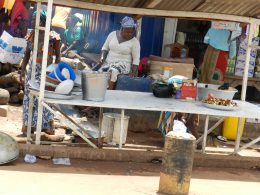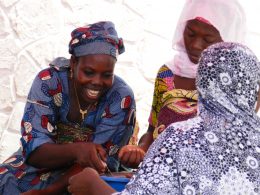The agricultural economics USDA METSS project is currently working on several surveys for Ghana. Two projects included in that group are the Demand Power Project and the Agricultural Production Survey Part II.
“You can imagine, most African countries do not have access to power,” says Cesar Guvele, adjunct assistant professor. “Ghana is very lucky that up to maybe 57 percent of the population actually has access to some sort of power.”
 Guvele says access to a reliable power source will help Ghana further its industrial development. The power project measures the willingness of the power users to pay for the electricity, and the supplier’s ability to provide that power for an affordable price, to help the people of Ghana improve their quality of life.
Guvele says access to a reliable power source will help Ghana further its industrial development. The power project measures the willingness of the power users to pay for the electricity, and the supplier’s ability to provide that power for an affordable price, to help the people of Ghana improve their quality of life.
“Ghana has set up a strategy to have all households hooked up to an electrical system in the country by 2020,” says Guvele. “Our project is tasked with determining the feasibility of that goal.”
If the prospect of 100 percent access to power is feasible, the question then becomes how can we make this a situation for all parties involved to thrive? The government, suppliers and end users need to compromise to have a system which benefits the country.
The second part of the project is a continuation of the agricultural production survey. Researchers are currently collecting data in the field covering the entire cropping cycle in Ghana. The survey focuses on maize, rice and soya production for the 2015-2016 production year.
“The survey is looking at yield, gross margins and the benefits of working with some of the implementing partners,” says Kara Ross, a research assistant professor. “Since we did the APS 1, we have a base to compare and see if there has been any improvement over the last couple of years, in terms of yield, production and profitability.”
